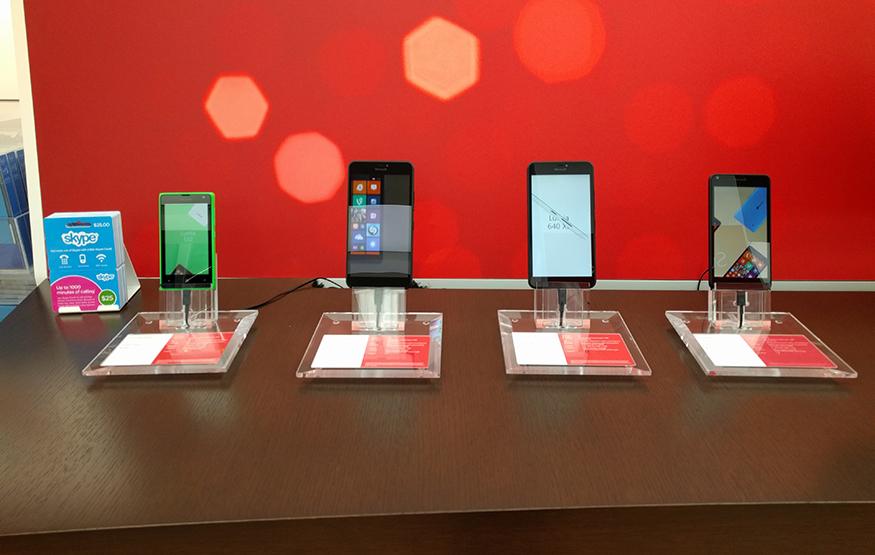Microsoft’s place in a post PC world

I remember when I first started my radio show back in 2000. Judge Jackson handed down a scathing verdict in the Microsoft antitrust case. "Microsoft's anticompetitive actions trammelled the competitive process through which the computer software industry generally stimulates innovation and conduces the optimum benefit of consumers". This continued for 50 pages. Despite the ruling, I remember thinking "who's going to take Microsoft's place? They own the PC market, how could someone even hope to match their size?".
By Charlie Brown | Opinion
I remember when I first started my radio show back in 2000. Judge Jackson handed down a scathing verdict in the Microsoft antitrust case. "Microsoft's anticompetitive actions trammelled the competitive process through which the computer software industry generally stimulates innovation and conduces the optimum benefit of consumers". This continued for 50 pages. Despite the ruling, I remember thinking "who's going to take Microsoft's place? They own the PC market, how could someone even hope to match their size?".
Microsoft were the dominant company in personal computers, and they were the dominant company on the internet. They provided the bulk of must have consumer and enterprise software. If you wanted a web server, you used Microsoft. If you wanted a home computer, you used Microsoft.
And not only were they dominant in terms of market share and customer penetration, they had a huge amount of money. If they wanted to compete with you, they had more resources than you could even imagine.
Fast forward 14 years, Microsoft are number three tech business in terms of market cap. Apple is one. Google is two. Microsoft is three. Microsoft isn't number three because Apple and Google did things better, but because customer behaviour changed. And Microsoft didn't change with it.
Mobile is the dominant platform now. Over 50% of the views to this website are from mobile browsers, and hell, our mobile site sucks (we're working on it, promise). Even though we're in front of our phones and the web every day, it's easy not to recognise the importance of something.
It feels like Microsoft didn't recognise the importance of mobile. It always seemed like Microsoft wanted to make sure Windows was the dominant platform, rather than creating the right product. When Microsoft first approached mobile, they didn't create something new for it, they shoehorned the existing version of Windows onto a device it wasn't quite suited for. I have fond memories of my old stylus-driven Windows Mobile devices, but they were never a device suited for the mainstream.
Enter Apple. Apple didn't create the first smart phone, but they arguable created the best iteration of it at the time. The iPhone was never about taking the software running on Mac and putting it on a phone, it was about doing something different. Sure, the first iPhone didn't have 3G, and you couldn't send a MMS, but it changed the world. If it weren't for Apple, I am sure my Samsung Galaxy would be a very different device.
Windows Phone and Windows 8.1 are both great pieces of software, but it feels like Microsoft have lost the relationship they had with their customers. Despite all of these improvements, people have moved away from Microsoft, so they don't know about them. Why would you buy a Windows Phone when you could have an iPhone? Because you don't like Apple? I'm not saying Windows Phone is a bad product, there are some phenomenal ones on the market, but they are a hard sell when there is so much competition are others are generating so much noise.
It feels like Microsoft have lost a bit of their identity. If you want seamless integration between your laptop, tablet and phone, you go with Apple. If you want to tinker and get into the nitty gritty, or you just don't like Apple, you go with Google. So where does that leave Microsoft? Somewhere in the middle, without a clear message. Microsoft were an aimless behemoth with a finger in each pie, but no mouth to eat them with.
Under the reign of new CEO Satya Nadella, Microsoft seem to have made some good moves and are shaking some of the dependence on the their two main revenue streams, Office and Windows. The Surface Pro 3 looks fantastic and I can't wait to get my hands on one; Office 365 on iPad is great; OneDrive just went toe-to-toe with Google Drive; and OneNote is one of my favourite pieces of software. Windows Phone 8.1 is definitely Microsoft's most compelling mobile offering, and now that they own Nokia's devices division, they have a handset company of their very own. But while this is all well and good, most consumers couldn’t tell you about any of these things, and they don't help clarify Microsoft's identity.
So that's the problem, and I'm not exactly sure what the solution is. If I did, I'd probably be working for Microsoft. I don't mean to be all doom and gloom, Microsoft are still making fantastic products, and last financial year they made almost USD$80,000 million in revenue. They clearly still have money in the bank. It's just that 15 years ago, if someone told me that Microsoft wouldn't be number one, there's no way I would have believed them. But nonetheless, I'm eagerly awaiting to see what Nadella's "Mobile First, Cloud First" strategy will bring.





